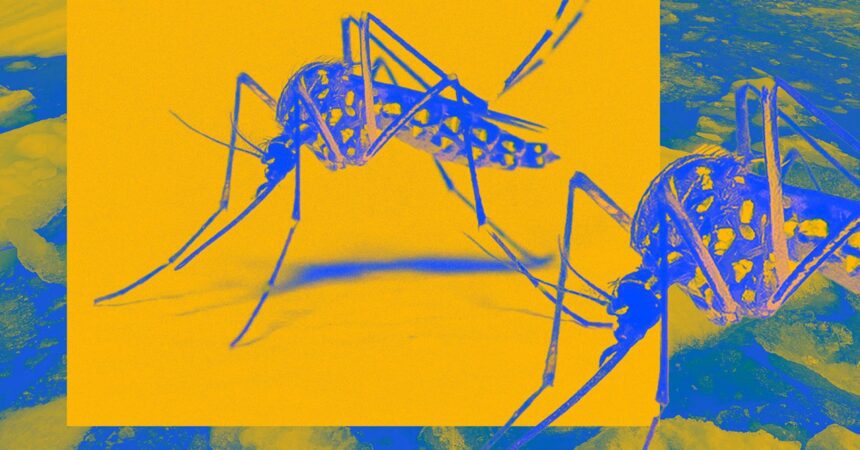The narrative of Dengue Boy, a brilliantly unconventional new novel by Argentine author Michel Nieva, serves as a rich broth from which the titular character emerges. This Dengue Boy is a peculiar hybrid of mosquito and human, possibly an experiment, a genetic anomaly, or the outcome of a heinous corporate mishap. He may very well embody all three identities simultaneously. However, this distinction is of little concern to the monstrous being, who resides in the year 2272 in what remains of Argentina after the melting of polar ice caps has transformed much of the planet into either submerged territories or sweltering, uninhabitable zones.
The heat is so intense that one could roast a turkey in merely 20 minutes at what’s considered room temperature in California. The “Argentine Caribbean” boasts a sultry year-round average of 140 degrees Fahrenheit (60 degrees Celsius). Therefore, it’s hardly surprising that real estate developers are busy reshaping the Antarctic Caribbean, creating entire biomes to simulate miniature versions of Earth on, well, Earth. For a standard fee, clients can select packages of five, ten, or twenty species to populate their newly formed biomes. Why settle for one Amazon rainforest when you can fabricate thirty?
Humanity persists, more or less, clinging to existence like a bug clinging to the underside of a rock. On the opposite side of this rock lies the elite offspring of the viroeconomy (more on that later). These children immerse themselves in virtual reality headsets, indulging in conquests reminiscent of the game Christians v Indians 2. One character even fantasizes about obtaining sheepies: nearly sentient fleshlights with countless orifices for exploration. Some own entire cupboards stocked with them.
I highlight the sheepies not for their salaciousness but because they illustrate the sheer oddity of Dengue Boy. The novel is ripe with visceral imagery—heads explodes, tentacles plunge, and insides become outsides—the pages pulse with bodily sensations. One might label the work as “climate fiction,” given its setting in a world grappling with the dire consequences of ecological disaster, yet such a label would fail to capture the novel’s intoxicating peculiarity, which traverses themes of economics, sexuality, biology, and the passage of time without ever catching its breath.
Any narrative featuring a protagonist in an insectile form naturally evokes comparisons to The Metamorphosis. The book’s inside cover characterizes Dengue Boy as an “extraordinary, Kafkaesque depiction of a deranged future.” However, in Kafka’s novella, Gregor Samsa awakens to discover his transformation into a grotesque insect; his profound anguish stems from a longing for a life left behind, a past he wishes to reclaim.
Dengue Boy, on the other hand, has always been Dengue Boy. There is no metamorphosis he must grapple with; rather, it is the exterior world that must learn to recognize him. “Where his mother would have desired to see roly-poly arms, his wings burgeoned forth, nerve endings reminiscent of the varicose veins of a repugnant old man, and where his mother would have liked to hear coos and charming squeals, all that emerged was a constant, maddening buzz that could drive even the most serene soul to despair.”
In The Metamorphosis, Gregor Samsa’s change is irreversible. Yet Dengue Boy undergoes a flurry of transformations, akin to evolution accelerated, until the boundaries of time, reality, or narrative blur beyond recognition.
In Dengue Boy, the affluent class isn’t comprised of tech enthusiasts; instead, they are gamblers in the viroeconomy, wagering on which diseases are on the verge of outbreak before capitalizing on stockpiled remedies. Together with developers erecting luxurious resorts on land abandoned by retreating glaciers, they stand as the primary beneficiaries in this economy of disaster. It requires a particular mindset to gaze upon a landscape ravaged by calamity and discern opportunities for upscale condominiums.
This might seem rather disheartening, yet Nieva’s visceral, surreal prose—translated from Spanish by Rahul Bery—is anything but. The novel takes the disturbing oddities of reality and amplifies them into something both heinous and captivating. It reminded me of the closing scene from the film Pearl, in which Mia Goth stares into the camera with a frozen grin that lingers, gradually transforming into deep sobs as the end credits roll.
Dengue Boy flips this effect. It is a grimace that evolves into a smile; a camera angle that spins so many times that one loses track of whether it is the director or the actor in focus, leaving you feeling either disoriented or exhilarated.
It is bizarre reality dissected, tossed in a whirlwind, and served with an enigmatic sauce on top. It’s utterly delectable, if one can handle it.










